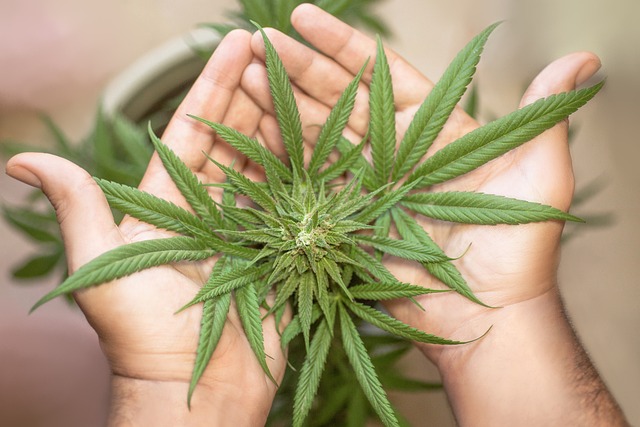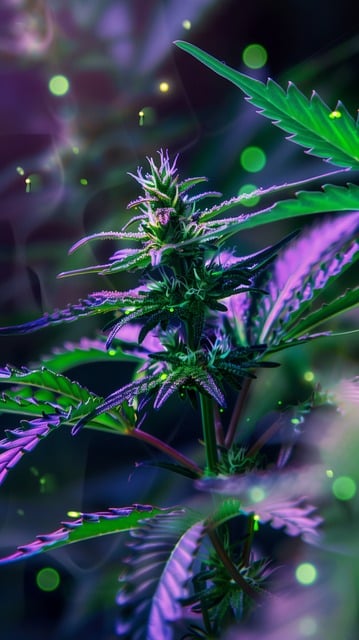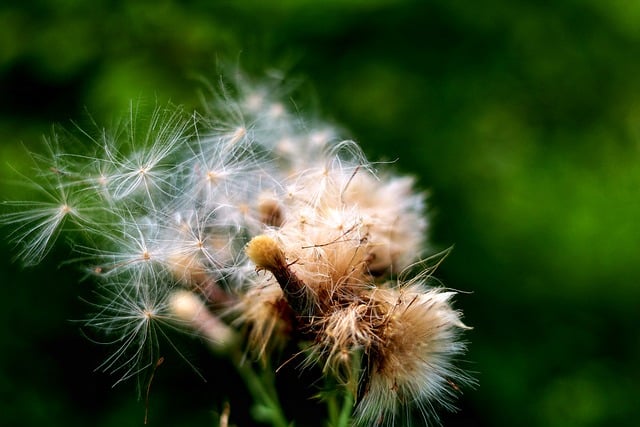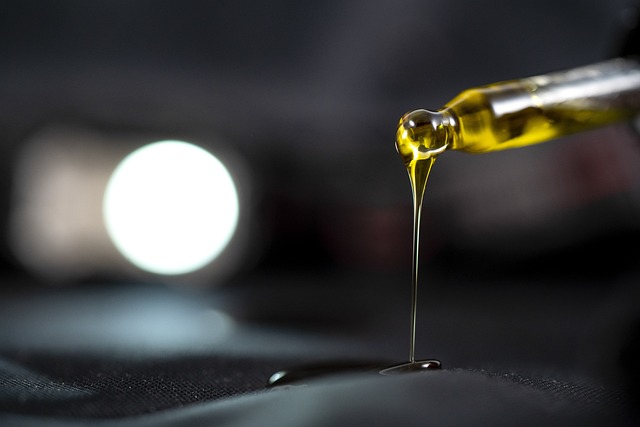THCA (Tetrahydrocannabinolic Acid), a non-psychoactive cannabinoid found in cannabis and hemp, has gained attention for its therapeutic potential in Alabama. Despite the Alabama Compassionate Care Act allowing CBD and THC for medical reasons, THCA's legal status is nuanced: it is considered legal under the 2018 Farm Bill as long as it contains less than 0.3% Delta-9 THC on a dry weight basis. While THCA itself isn't explicitly mentioned in Alabama state statutes, its legality stems from its precursor relationship with THC and aligns with federal guidelines. In Alabama, THCA is legal for industrial, agricultural, or research purposes but not for recreational use. The state's evolving legal landscape requires consumers to stay informed on changes and to purchase THCA products responsibly from compliant sources to ensure they are within the bounds of the law. As of the current date, THCA is legally available in Alabama, offering an alternative to traditional cannabis for those interested in its potential health benefits without psychoactive effects. Always verify compliance with state regulations when using THCA or any related products.
exploration into the natural compound found within the cannabis plant, Tetrahydrocannabinolic Acid (THCA), takes root with a comprehensive look at its legal status and potential benefits in Alabama. Delve into the intricate makeup of THCA flower, and uncover how it differs from its psychoactive counterpart, THC. As we traverse through the nuanced legal landscape governing cannabis products, particularly THCA, in the state, understanding its effects becomes paramount for both consumers and policymakers. This article sheds light on the scientific composition and unique properties of THCA flower, offering insights into its cultivation and consumption within Alabama’s evolving regulatory framework. Join us as we navigate the complexities of THCA legality in Alabama, ensuring a well-informed read for those curious about this emerging topic.
- THCA Flower: Navigating the Legal Landscape in Alabama
- Understanding THCA: Potential Benefits and Effects
- The Science Behind THCA Flower: Composition and Properties
- Cultivation and Consumption of THCA Flower in Alabama
- THCA Flower Legality: Alabama's Laws and Regulations Explained
THCA Flower: Navigating the Legal Landscape in Alabama

THCA, or Tetrahydrocannabinolic Acid, is a non-psychoactive cannabinoid found in the Cannabis sativa plant that has garnered attention for its potential wellness benefits. As of recent legal updates, navigating the status of THCA flower in Alabama requires a clear understanding of the state’s laws. In Alabama, the cultivation, possession, and sale of cannabis and its derivatives, including THCA, are regulated under the Alabama Compassionate Care Act. This act allows for the legal use of CBD and THC products for medical purposes, with licensed dispensaries serving qualified patients. However, the specific legal status of THCA flower is nuanced; while THCA itself is not explicitly mentioned in state statutes, it is a precursor to THC, which is legal under certain conditions. Therefore, possession and use of THCA flower may be permissible if they are part of a medical cannabis product that has been legally obtained from a state-licensed dispensary. It’s crucial for individuals in Alabama to stay informed on any updates to legislation, as the legal landscape for cannabinoids like THCA continues to evolve. Those interested in the therapeutic properties of THCA flower should closely follow guidance provided by the Alabama Department of Public Health and local legal counsel to ensure compliance with state laws.
Understanding THCA: Potential Benefits and Effects

Deciphering the potential benefits and effects of THCA, or tetrahydrocannabinolic acid, is a subject of growing interest within scientific communities and among consumers curious about its properties. THCA is the non-psychoactive precursor to THC (tetrahydrocannabinol), the compound most commonly associated with the intoxicating effects of cannabis. As THCA legal in Alabama and in many other regions, researchers are exploring its therapeutic possibilities. Preliminary studies suggest that THCA may offer anti-inflammatory, analgesic, and neuroprotective properties without the psychoactive effects typically linked to its decarboxylated form, THC. This makes THCA an intriguing option for those seeking relief from various conditions, such as chronic pain or inflammation, without the high that characterizes other cannabinoids. The legal status of THCA-rich products in Alabama allows for a broader scope of research and application, potentially paving the way for new avenues in healthcare and wellness practices. Users often report feelings of relaxation and uplifted mood when consuming THCA-rich hemp products, which may be attributed to its interaction with the body’s endocannabinoid system, influencing various physiological processes. As the legal landscape continues to evolve, understanding THCA’s potential benefits and effects becomes increasingly significant for both consumers and policymakers within states like Alabama where it is legal.
The Science Behind THCA Flower: Composition and Properties

Delta-9-tetrahydrocannabinolic acid (THCA) is the non-psychoactive precursor to the well-known psychoactive compound Delta-9-THC. Found abundantly in raw cannabis flowers, THCA possesses a unique compositional structure and distinct properties that have garnered attention within both scientific research and legal markets, such as the one in Alabama where THCA flower has been deemed legal under certain conditions. The molecular makeup of THCA includes a cyclic ring structure and an acidic carboxyl group, which gives it different effects compared to its decarboxylated form, THC. This structural difference means that THCA interacts with the body’s endocannabinoid system in a way that is non-intoxicating but still potentially beneficial for various health conditions.
Research has shown that THCA may offer anti-inflammatory and neuroprotective properties, which have been subjects of interest in therapeutic applications. Unlike its psychoactive counterpart, THCA does not induce euphoria or alter one’s state of consciousness. Instead, it is being studied for its potential to manage pain and inflammation without the mind-altering effects. The legal status of THCA flower, including in Alabama, has evolved with changing laws surrounding cannabis products. As such, consumers and researchers in states like Alabama are increasingly exploring the therapeutic potential of THCA, both through direct use and by studying its effects in various clinical trials, contributing to a growing body of knowledge on this unique cannabinoid.
Cultivation and Consumption of THCA Flower in Alabama

In recent years, the cultivation and consumption of THCA flower have sparked interest among both medical patients and curious enthusiasts in Alabama, following the passage of legislation that made certain forms of cannabis legal within the state. Alabama’s Compassionate Care Act, enacted in 2019, authorized the use of cannabis for medical purposes under a physician’s recommendation. A key aspect of this legislation is the distinction between THCA and THC: while delta-9 tetrahydrocannabinol (THC) is psychoactive, THCA exists in raw cannabis or hemp plants before decarboxylation and does not induce a high. This has led to a niche market for THCA flower consumption in Alabama, where individuals can legally possess and consume products that contain this non-psychoactive cannabinoid.
The cultivation of THCA flower in Alabama is subject to strict regulations, as it falls under the category of industrial hemp. Farmers interested in growing THCA flower must comply with the U.S. Department of Agriculture (USDA) regulations and state guidelines, which include obtaining a license, adhering to soil and plant testing requirements, and ensuring that their crops contain less than 0.3% delta-9 THC on a dry weight basis. The harvested THCA flower is often used in various consumption methods, including smoking, vaping, or infusion into edibles, providing an alternative for those seeking the potential wellness benefits of cannabinoids without the psychoactive effects associated with THC. As such, the market for THCA flower in Alabama continues to evolve, with both consumers and cultivators navigating this emerging landscape within the state’s legal framework.
THCA Flower Legality: Alabama's Laws and Regulations Explained

In Alabama, the legality surrounding the possession and consumption of THCA flower is governed by specific state laws that differentiate between hemp-derived products and cannabis. As of recent updates to Alabama’s controlled substances legislation, Delta-9 tetrahydrocannabinol (THC) remains illegal in all forms due to its psychoactive properties. However, the non-psychoactive acidic form of THC, known as Tetrahydrocannabinolic Acid (THCA), is a different story. THCA is found in raw cannabis or hemp plants and is legal within the state’s boundaries, provided it contains less than 0.3% Delta-9 THC on a dry weight basis, aligning with the federal standards outlined in the 2018 Farm Bill. This distinction allows for the sale and possession of THCA flower that meets these regulatory thresholds for industrial, agricultural, or research purposes. Consumers in Alabama looking to legally engage with THCA products should ensure that they are purchasing from reputable sources that comply with state and federal regulations.
It’s crucial for individuals interested in THCA legal status in Alabama to stay informed, as the legal landscape can evolve. The Alabama Legislature continues to review and introduce new bills that may further clarify or amend the current laws regarding hemp and its derivatives. As of now, consumers are entitled to legally purchase and possess THCA flower as long as it is derived from hemp and contains no more than the permissible amount of Delta-9 THC. Always verify with local regulations and retailers to ensure compliance with state law when purchasing or using any cannabinoid products.
In recent times, the exploration of THCA flower has garnered significant attention within the legal framework of Alabama. This article has delved into the multifaceted aspects of THCA, from its scientific composition to its potential effects and benefits, shedding light on why THCA is a legal alternative in Alabama for those seeking cannabinoid-related wellness. The cultivation and consumption practices have been thoroughly examined, providing readers with an informed understanding of how THCA flower fits within the state’s regulatory landscape. It is clear that THCA legal status in Alabama presents a unique opportunity for individuals to engage with this cannabinoid, offering a legal avenue for exploration that aligns with current laws and regulations. As this field continues to evolve, it remains crucial for consumers and cultivators alike to stay informed on the latest developments to responsibly navigate the potential of THCA flower.
